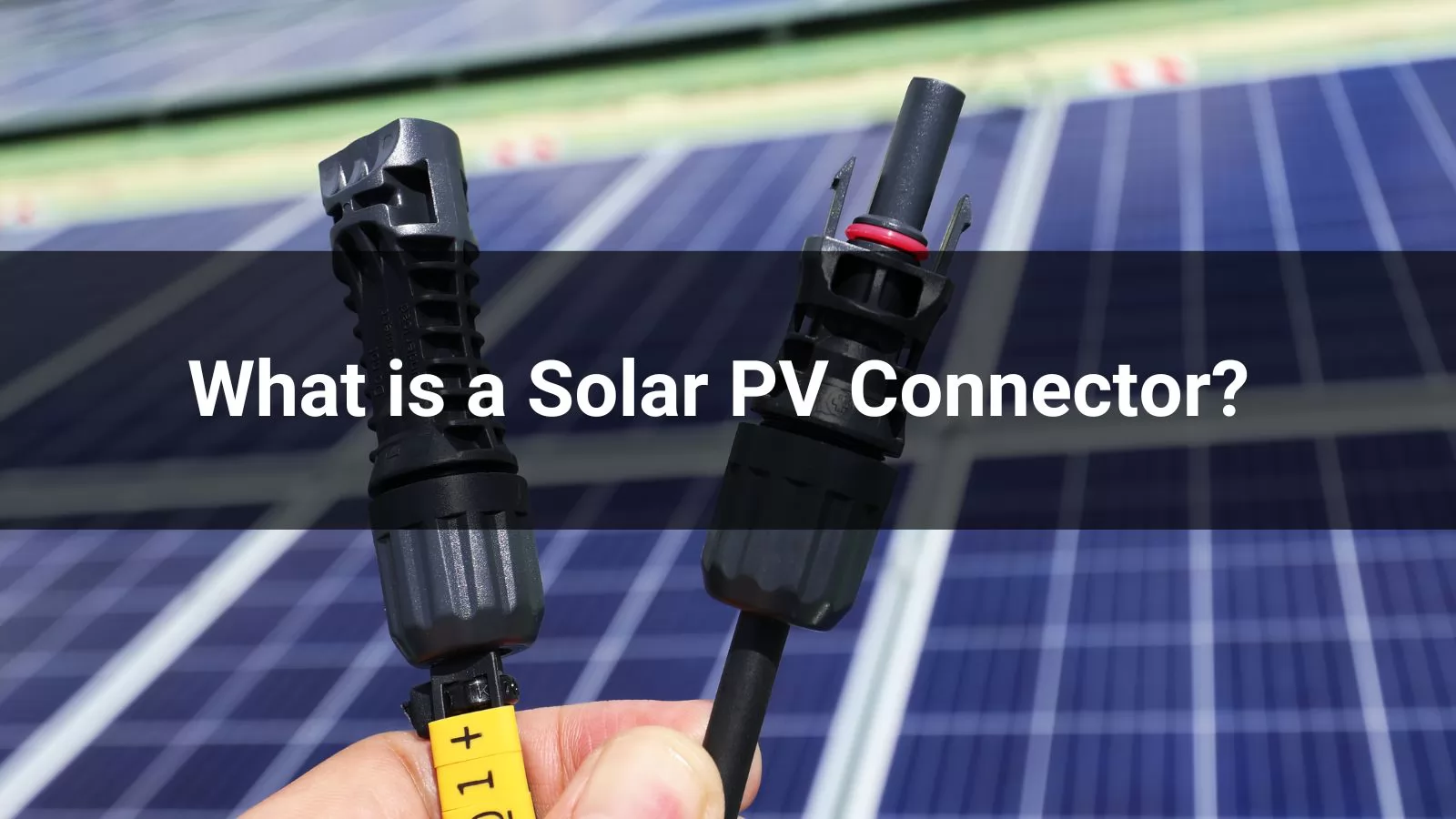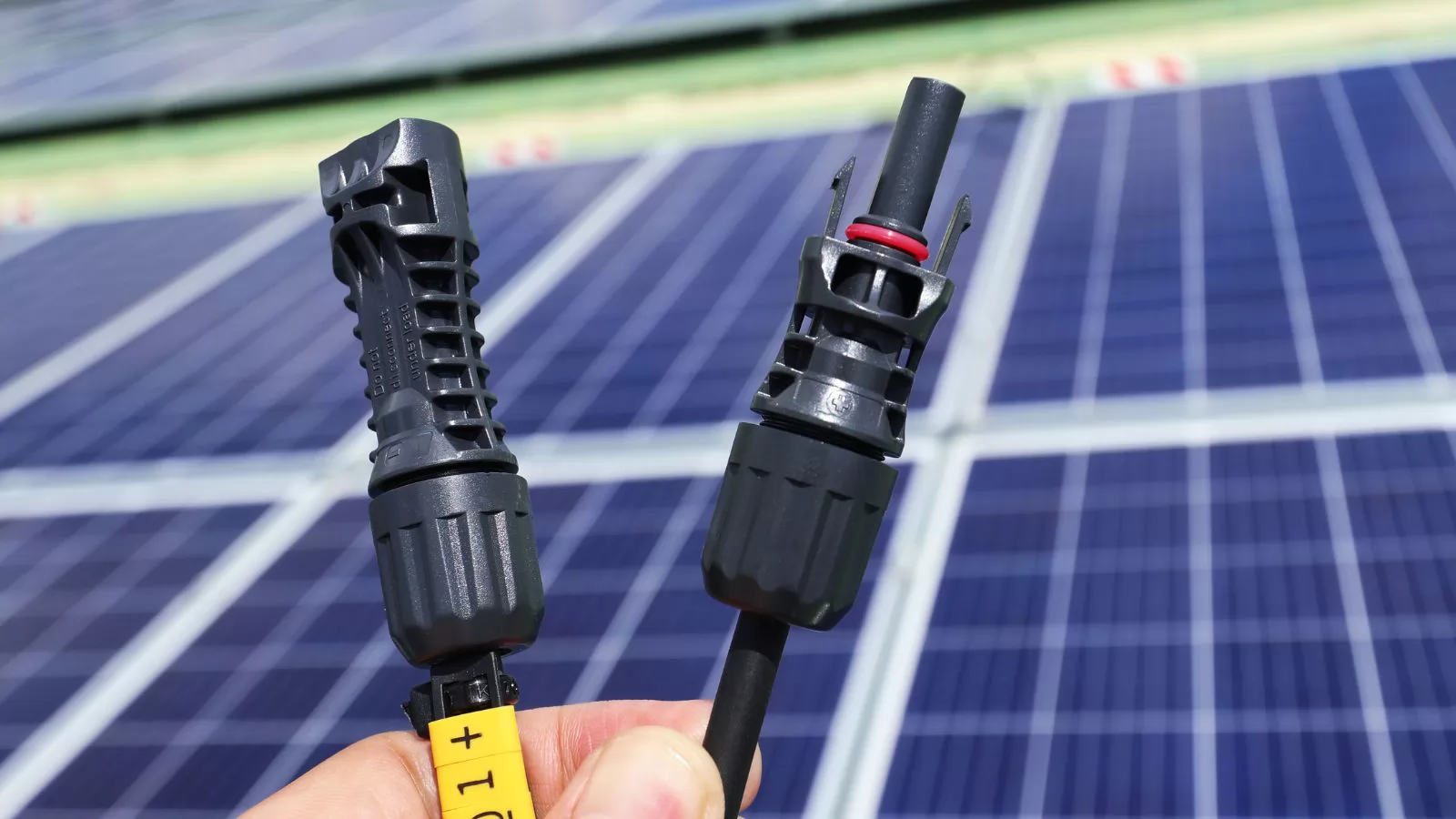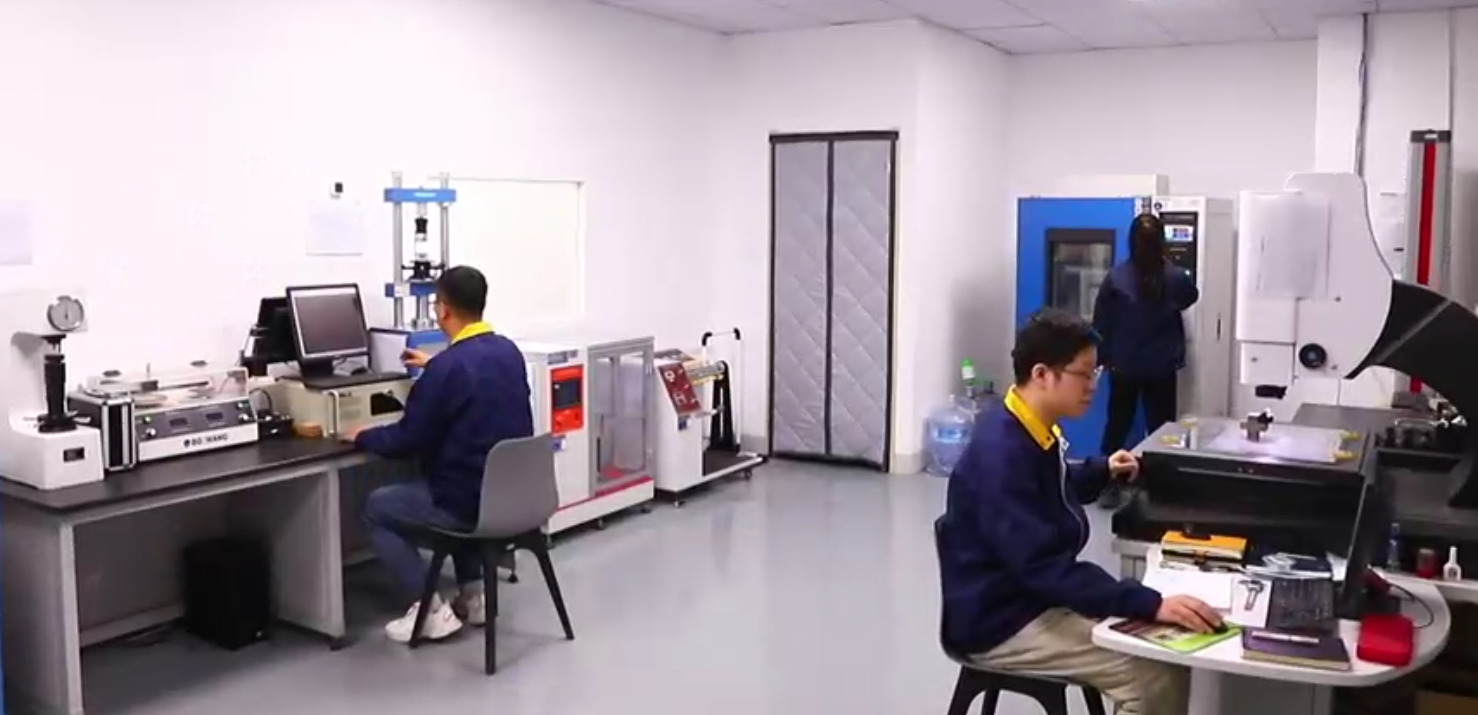
In the world of renewable energy, the technology behind solar energy systems is constantly evolving. While solar panels and inverters tend to get all the attention, there’s one critical component that often flies under the radar: the solar PV connector. These small yet powerful connectors are essential to ensuring your solar system operates at peak efficiency, and understanding their function could save you both time and money.
In this article, we’ll dive deep into solar PV connectors, explore their various types, discuss their advantages, and help you understand why choosing the right connector is so important for your solar installation. Whether you’re a seasoned installer or a business owner just getting started with solar energy, knowing about solar PV connectors will help you optimize your system’s performance.
What is Solar PV?
The term Solar PV stands for Photovoltaic, which is a method of converting sunlight directly into electricity. Solar panels are made of photovoltaic cells that capture sunlight and convert it into direct current (DC) electricity. Once the electricity is produced, it flows through your system, where it can be converted into alternating current (AC) by an inverter and then used to power your home or business.
Photovoltaic technology has made solar energy highly accessible. It’s low maintenance, renewable, and provides a sustainable energy source with a minimal carbon footprint. However, none of this would be possible without the small yet mighty solar PV connectors, which ensure that all components of the system work together seamlessly.
What Is a Solar Panel Connector?

A solar PV connector (often referred to as a solar panel connector) is a specialized electrical connector designed to link solar panels together or to connect them to other components in the solar energy system. These connectors are vital in safely and efficiently transmitting the electrical current produced by solar panels. Think of them as the unsung heroes of a solar energy system. Without solar PV connectors, your panels couldn’t work together as a unified system. Instead, each panel would be an isolated island of power, and you wouldn’t get the full potential of your solar installation.
Key Functions of a Solar PV Connector
-
Seamless Electrical Flow: The main job of a solar PV connector is to transmit electrical current from one solar panel to another, or from panels to the inverter. They ensure that the electricity flows smoothly through the entire system.
-
Weather Resistance: Since solar panels are typically installed outdoors, solar PV connectors are designed to withstand the elements. They are built to resist moisture, UV rays, dust, and fluctuating temperatures.
-
Safety: Electrical systems, particularly those that generate high levels of power, can be dangerous if not installed correctly. Solar PV connectors come equipped with safety features like locking mechanisms and insulation to prevent accidental disconnections and short circuits.
-
Minimizing Energy Loss: The right solar PV connector ensures minimal energy loss as electricity moves through the system. Poor-quality connectors can lead to inefficiencies, where power is lost, thus lowering the overall energy output.
What are The Advantages of Solar Connectors?
While they may seem like a small part of the system, solar PV connectors come with significant advantages that impact the performance and longevity of your solar installation.
1. Efficiency Enhancement
A high-quality solar PV connector ensures that the energy produced by the solar panels is transferred without any significant loss. The better the connector, the more energy you can use, making your system more efficient. For large commercial installations, this can mean substantial savings over time.
2. Ease of Installation
Most solar PV connectors are designed for easy, plug-and-play installation. They often come pre-attached to the solar panels, meaning installation is as simple as connecting them to the next panel or system component. This reduces labor costs and installation time, which is crucial for businesses with large-scale solar projects.
3. Durability and Longevity
Solar systems are long-term investments, with lifespans that often exceed 25 years. Solar PV connectors are built to last, with weatherproof materials that resist corrosion, moisture, and UV damage. Their durability ensures that the system remains functional for decades without the need for constant maintenance or replacement.
4. Enhanced Safety
Safety is a top priority in any electrical system, and solar installations are no exception. Solar PV connectors are designed with secure locking mechanisms to prevent accidental disconnections and potential short circuits. This is especially important for high-voltage systems in commercial and industrial settings.
Types of Solar PV Connectors
There are several different types of solar PV connectors on the market, each with its own unique features and advantages. Here are the most common ones:
MC4 Connectors
MC4 connectors are the industry standard when it comes to solar PV connectors. Known for their simplicity and reliability, they are compatible with most solar panels. MC4 connectors have a built-in locking system, ensuring that the connection stays secure even under extreme conditions.
Amphenol H4 Connectors
Similar to MC4, Amphenol H4 connectors are highly durable and easy to install. These connectors are designed for large-scale solar systems that require connectors capable of handling higher currents.
Tyco Solarlok Connectors
Tyco Solarlok connectors are another popular choice, known for their simplicity and durability. These connectors are commonly used in both residential and commercial solar installations and provide a reliable connection with minimal energy loss.
Frequently Asked Questions
Can I Use Any Connector for My Solar System?
No, it’s essential to use connectors that are compatible with your solar panels and system. Most panels come pre-fitted with MC4 connectors, but it’s always best to double-check compatibility before installation.
How Long Do Solar PV Connectors Last?
Solar PV connectors are designed to last as long as the solar system itself, often 25 years or more. However, their longevity depends on the quality of the connector and the environmental conditions they are exposed to.
Do Solar Connectors Affect System Efficiency?
Yes, using poor-quality connectors can lead to energy loss, which lowers the efficiency of your solar system. Always opt for connectors from reputable manufacturers to ensure optimal performance.
Discover the Handa Difference
Understanding the importance of solar PV connectors is essential for anyone looking to invest in a solar energy system. These small but crucial components ensure that your system runs smoothly, safely, and efficiently. Whether you're connecting panels in a small residential setup or a large commercial installation, using high-quality solar PV connectors is key to maximizing the return on your solar investment.
If you're looking to optimize your system or ensure you're using the best connectors for your installation, always consider factors like compatibility, durability, and ease of installation. At the end, the right solar PV connector manufacturer can make all the difference in how well your solar system performs over the long term.
.png)

.png)


.png)
.png)
.png)
.png)





